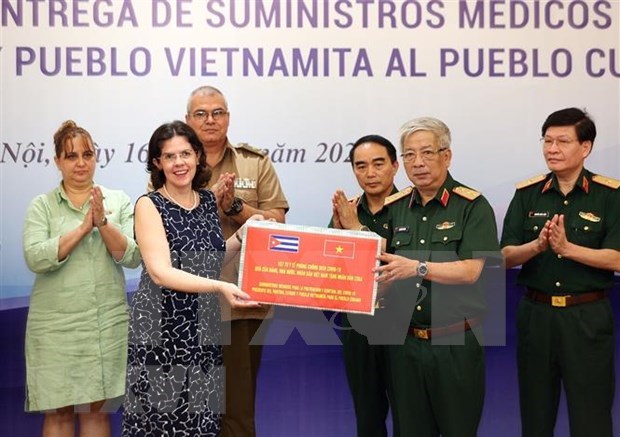Havana Cuba. — Right from the start, I should clarify one thing: although the approaches of this journalistic work are valid for everyone, when I wrote it I had in mind, first of all, those of my readers —I suppose few in number— who still profess —albeit only lip service—the ideas of Leninist Marxism.
It is natural for a Cuban with democratic convictions like the one who writes this to reject any communist regime. It is that this unhealthy doctrine is, by definition, contrary to the freedoms of his subjects; she violates or reduces to zero the rights that, due to their mere condition of human beings, correspond to those who groan under her.
But, among the different types of communism, some (like Cuba’s) are worse, and others simply bad. Something similar happens with this liberticidal theory as with the hell described in his masterpiece by Dante Alighieri: there are different circles and the terrible penalties suffered by the inhabitants of one or the other are more or less intense, depending on the degree of guilt that the poet attributed them to the sins committed by the different characters condemned to live in each one of those infernal dependencies.
Already located in this context, I choose to make some comparisons between the regime established in Cuba by Castroism and the one suffered by the inhabitants of Vietnam. This is due to the fact that the Southeast Asian country has always received a very high evaluation in the media of agitation and propaganda based in Havana. This began with the founder of the dynasty, among whose pronouncements stands out a highly publicized phrase, which is nonetheless truculent and demagogic: “For Vietnam we are willing to give up our own blood.”
Already situated in this context, we must recognize that it would be convenient for the Cuban reds —even from the point of view of their petty partisan interests— to imitate their Vietnamese counterparts in many ways. If they did so, at least there would be a little more coherence in their actions; a little less discrepancies between his political blablabla and his facts.
An example of this is the personal life of the founders of the communist regime in the respective countries. Like its Caribbean counterpart, Ho Chi Minh he was a ruthless communist dictator, but in the midst of his miserable subjects, he practiced the austerity that he preached: for example, he did not have dozens of residences at his disposal throughout Cuba, but rather lived in a modest little pavilion that he had built in a courtyard of the palace presidential office, in which he worked, but did not live.
We could also mention the Vietnam War, which was real and very bloody. In contrast to this, the “constant attacks of Yankee imperialism against Cuba”, of which the “Commander in Chief” liked to talk so much, were, predominantly, the result of his feverish imagination, and were reflected in his verbosity. unstoppable.
Now that the war is over, the Vietnamese teachings on peace are also highly instructive. Barely two months after the end of hostilities, Prime Minister Pham Van Dong already invited the former enemies to normalize relations. The process —as was to be expected— was complex and contradictory. But in 1994—more than a quarter of a century ago!—and as a result of steps taken by both sides, the US embargo was lifted.
And for the record, this occurred despite the several million deaths suffered by Vietnam during the war! (This, according to data that have become known later, because if we limited ourselves to the information from the Castro newspaper Granmathat conflict would have been the only one in which only one of the parties —the North American— suffered casualties).
The Cuban regime has adhered to contrary rules. Despite the derisory casualties suffered during the three days of the Bay of Pigs invasion (which, strictly speaking, was a conflict between two sides of Cuban combatants) and the more than sixty years since then!, Castroism has preferred to continue using the pretext of confrontation and the “blockade” to charge to its account all the calamities suffered by the Island as a result of the inoperative bureaucratic socialist system, maintained at all costs despite its proven infeasibility.
Cuban communists could also learn from the flexibility with which their Vietnamese comrades abandoned in the 1980s the sterile collectivism that kept their people destitute. As of that year, the “Renewal” (“Doi Moi”) began, which has made it possible to significantly raise the standard of living of citizens.
Not in Cuba. Here the Castro regime continues to affirm that the “socialist state enterprise” must continue to be the backbone of the economy. In the fields, rather than apply the necessary reforms, he prefers that agricultural production continue to decline and continue having to import more than 80% of the food consumed in the country.
Finally, and to cite a more recent event, the Castroites could also learn from the recent resignation and removal of the Vietnamese president, Nguyen Xuan Phucdue to a corruption scandal. What a difference with Cuba, where acts of this type are thrown dirt (like cat poop) and Panglossian language continues to be used and thinking that “everything is for the best in the best of all possible worlds”!
OPINION ARTICLE
The opinions expressed in this article are the sole responsibility of the person who issues them and do not necessarily represent the opinion of CubaNet.
Receive information from CubaNet on your cell phone through WhatsApp. Send us a message with the word “CUBA” on the phone +525545038831, You can also subscribe to our electronic newsletter by giving click here.














